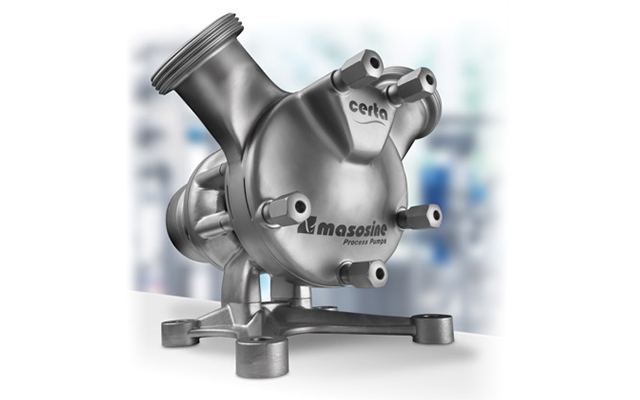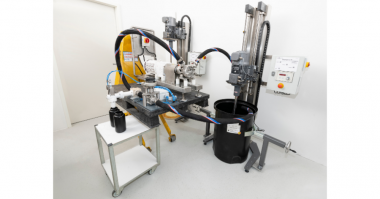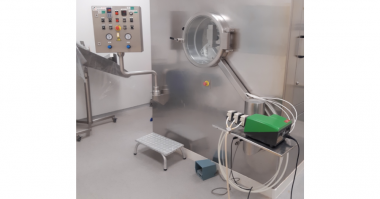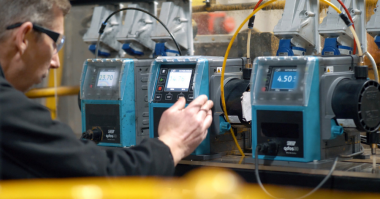The leading manufacturer of SineTM pumps is encouraging food and beverage manufacturers to review their existing pump technology as part of a structured approach to energy management.
Watson-Marlow Fluid Technology Group, which manufactures MasoSine sinusoidal pump technology, believes companies should embrace energy management standards such as ISO50001 as an opportunity to assess the potential for savings at a plant level. This includes a complete review of existing pump technology, specifically in high-viscosity applications. For example, a switch to MasoSine technology in such scenarios, will deliver up to 50% power saving in comparison to lobe or circumferential piston pumps.
The path to effective energy management for a growing number of companies is via ISO 50001. This international standard outlines energy management practices that are considered to be the world’s best. Energy management experts from more than 60 countries developed the standard to help companies save energy, cut costs and meet environmental requirements.
ISO 50001 shows plants how to take a structured approach towards measuring and monitoring energy use. For those that have chosen to go down the ISO 50001 route, this stage will highlight the need to look in detail at energy-intensive plant and equipment, including pump technology.
The requirement for such a detailed analysis is echoed by data from the BPMA (British Pump Manufacturers’ Association), which states that pumps account for around 10% of the world’s electricity consumption, while two-thirds of pumps use up to 60% more power than necessary. Furthermore, energy represents 95% of a pump’s lifecycle cost, so the opportunities for savings are substantial.
Florian Walter, MasoSine product manager believes the greatest savings opportunities exist for food and beverage plants faced with processing viscous substances, from mayonnaise to meat. “There are some obvious easy-wins to enable significant and immediate gains. Among these is upgrading to more energy-efficient pump systems,” he comments.
Savings for high-viscosity applications
With this in mind, a growing trend is the adoption of sinusoidal pump technology. Mr Walter continues, “Opting for Sine pumps not only ensures energy efficiency, especially when processing high viscosity substances, but offers particularly gentle pumping.”
There are a number of key benefits associated with using Sine pump technology with respect to added value and cost reduction, particularly regarding energy consumption. For instance, Sine pump technology typically requires up to 50% less power than lobe or circumferential piston pumps. Moreover, the size of the savings increase in line with viscosity: the higher the viscosity, the more the savings.
So how is this achieved? Well, the rotor design of Sine pumps enables a very large range of viscosities (from 1 cP to 8 million cP) to be handled without modification to the pump and with minimal effect on power requirements, hence the significant energy savings.
The compelling commercial arguments for adopting Sine pump technology are documented in a new white paper from
Watson-Marlow Fluid Technology Group. The white paper shows how the use of specially developed
MasoSine energy efficiency (Mee) curves have been developed as an effective tool to prove the aforementioned points.
In simple terms, Mee curves enable Watson-Marlow to show customers (via a set of performance curves and calculations) the energy savings available. It is also possible to demonstrate how energy savings rise as viscosity increases.
Included in the white paper are a number of case studies relevant to the food and drink sector, such as those involving buttercream icing, milk concentrates and fruit juice concentrates.
Of course, the need to lower carbon footprint is also significant, with big initiatives to ensure ‘green’ credentials promoted at both company and supply chain level. Unfortunately, the main sources of greenhouse gas emissions from food and drink manufacturing sites relate to the use of energy, with fans and pumps accounting for 12% of emissions. According to the Carbon Trust’s Food and Drink Processing Guide, a fully loaded motor consumes its own purchase cost in electricity in just 30 to 40 days of continuous running.
The good news is that the inherent design of MasoSine technology means that not only can energy efficiency be improved, but carbon footprint can be reduced, making for a greener supply chain and enhanced corporate reputation.




Comments